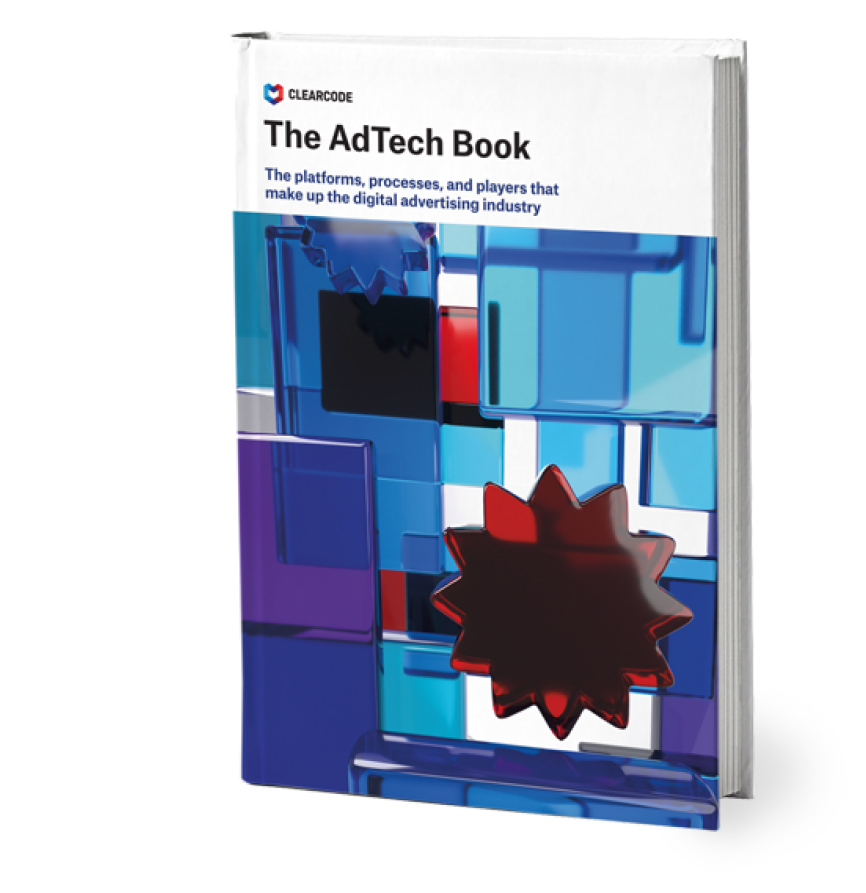Every Friday we present you a curated list of top AdTech stories in a condensed, easily-digestible format. The goal is simple: maximum knowledge at minimum reading. All you need is five minutes of spare time and a cup of good coffee.
Here’s this week’s portion of interesting industry news:
Google’s Move To First-Price Auctions Will Likely Put A Dent In Header Bidding [Ezoic.com]
Google has recently unveiled plans to transition the company’s proprietary ad exchange (AdX) and ad server (Ad Manager/DFP) to the first-price auction model. We’ve written about the differences between first- and second-price auction models in one of our previous posts.
The change will affect digital publishers and advertisers in many ways – it will force them to shift the strategies and impact various publishing partnerships and technologies.
Key points:
- The second-price auction model will be slowly phased out this year in Google ad exchange and ad servers
- The transition will kill the advantage of having lots of header bidding and ad demand partners.
- Publishers with valuable inventory will be most likely benefit.
- The transition will increase the importance of overall audience engagement.
Intelligent Tracking Prevention 2.2 Changes Cookie Storage Duration [MetricTheory]
ITP 2.2 is included in the beta releases of iOS 12.3 and macOS Mojave 10.14.5. We’ve written about the ITP in more detail in a comprehensive post on our blog.
In ITP 2.2., persistent cookies set through document.cookie are now limited to one day of storage when two conditions are met: traffic comes from a domain with cross-site tracking capabilities (e.g. major ad networks like Google and Facebook) and the final URL of the navigation has a query string and/or fragment identifier.
Key points:
- WebKit’s new version of ITP will skew performance data collected in analytics systems and ad platforms (more specifically speaking, the traffic coming from Safari).
- It will impact cookies created via javascript (e.g. by Google Analytics, Google Ads, Facebook Ads, Bing Ads, DV360) as well as anything else deployed using document.cookie on the publisher’s site.
- The cookies from ad platforms which add user specific information and then pass this into first party cookies on the domain, will expire after 1 day.
- Users who convert the same day as the click (i.e. within 24 hours) will be tracked the same way as prior to this change. Without the cookie being stored, anyone converting later will be treated as a new visitor.
More Publishers Are Breaking Up With Resellers [AdExchanger]
The release of ads.txt back in May 2017 helped reduce certain types of ad fraud, particularly domain spoofing. But it also provided an opportunity for publishers to take a hard look at their ad partners and remove ad exchanges and resellers that were providing little value and slowing down their pages.
Key points:
- Over the past 3 years, The New York Times have reduced its programmatic partners by 75% and ceased relationships with resellers.
- Prior to the release of ads.txt, Hearst reduced the number of partners they worked with and removed all resellers.
- When creating their ads.txt file for the first time, Business Insider left out all intermediaries.
- DotDash has also removed resellers from their ads.txt file.
- AccuWeather has reduced the number of resellers it works with.
- Many of the above publishers have claimed that removing or reducing the number of resellers they have in their ads.txt file has improved ad quality, provided them with more control and clarity into the programmatic ad-buying process, and reduced page-load latency.
How Google Is Changing The Agency Model [MediaPost]
Platforms like Google and Bing are crippling the revenue of agencies, impacting the role of their services for brands. Newly introduced solutions and functionalities allow brands to take care of their own campaigns online.
Key points:
- Google’s “intelligent” platforms like Responsive Search Ads (currently beta) work well – says Steve Gibson, CMO and managing partner at DealerSauce – an agency working for car dealerships.
- Solutions like Responsive Search Ads helps smaller agencies but poses challenges for larger ones – essentially changing their role for brands or completely removing the need for using them.
- Google’s Responsive Search Ads uses building blocks and custom elements to dynamically generate ads and test them using machine learning.
- Some agencies believe Google makes too frequent changes to its platform, often without even agencies know.
- The frequent changes and lack of transparency makes it difficult to track conversions.







